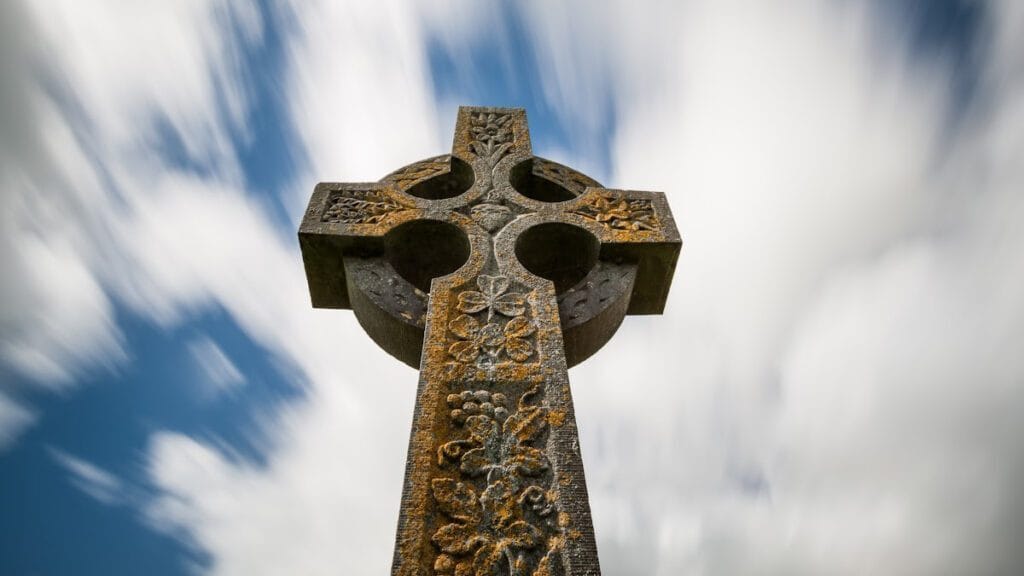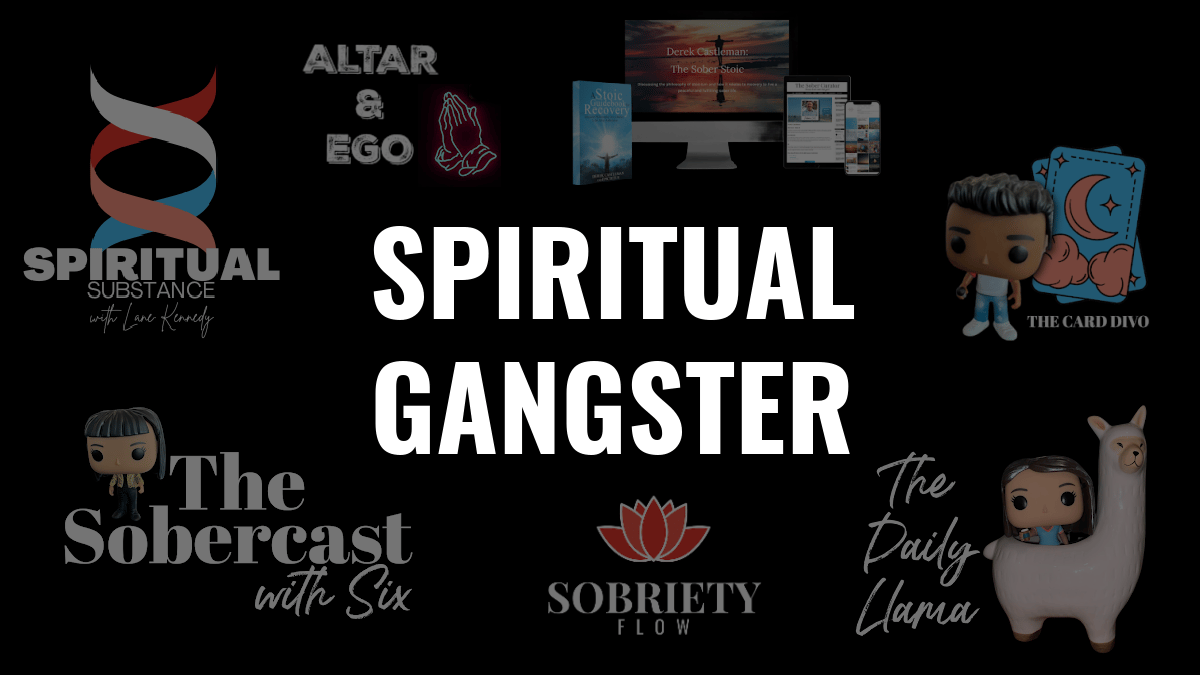- The Sober Sip powered by The Sober Curator
- Posts
- The Journey of Sobriety: A Pilgrimage Through Celtic Spirituality
The Journey of Sobriety: A Pilgrimage Through Celtic Spirituality

Sobriety is often described as a journey—a path we walk day by day, step by step. It’s a journey that’s deeply personal, often challenging, and profoundly transformative. For many of us, this path is not just about abstaining from alcohol; it’s about finding a new way of living, a deeper connection to ourselves, and a more authentic relationship with the world around us. This journey of sobriety can be likened to a pilgrimage, a concept central to Celtic spirituality.
In Celtic tradition, pilgrimage is more than just a physical journey to a sacred site; it’s a spiritual quest, an intentional act of seeking wisdom, healing, and connection. These pilgrimages often take place in landscapes steeped in myth and history—places where the boundaries between the physical and spiritual worlds are said to be thin. For those of us in recovery, this concept resonates deeply. Our journey toward sobriety is much like a pilgrimage, full of challenges, insights, and moments of profound clarity.
The Celts viewed pilgrimage as a way to connect with the divine, seek out wisdom, and honor the natural rhythms of the earth. These journeys were not just about reaching a destination; they were about the process of getting there—the experiences, struggles, and revelations along the way. Pilgrimage was a time to step away from the ordinary and immerse oneself in the sacred. Similarly, sobriety is not just about being alcohol-free; it’s about the ongoing process of healing, growing, and becoming more aligned with our truest selves.
One of the most powerful aspects of Celtic pilgrimage is the idea of “thin places.” These are locations where the veil between the physical and spiritual worlds is particularly thin, where one can feel a deep connection to the divine. In recovery, we encounter our own thin places—moments of clarity where we feel profoundly connected to our spirit, to others, and to something greater than ourselves. These moments can occur anywhere, often when we least expect them, reminding us of the sacredness of our journey.
One of the most memorable thin places I’ve encountered in my sobriety was during a visit to Brigid’s Well in Kildare, Ireland. Brigid, a goddess of healing and poetry in Celtic tradition, was later syncretized as St. Brigid. Her well, a place of pilgrimage for centuries, is said to be a site of deep spiritual power. As I sat by the well, the air thick with mist and the scent of wildflowers, I felt an overwhelming sense of peace—a moment where the noise of life faded away, leaving only a profound sense of connection. In that moment, I understood sobriety not just as an absence of alcohol but as a presence—a presence of mind, spirit, and heart. It was a reminder that the journey of sobriety is sacred, that each step we take is part of a larger, meaningful pilgrimage.
The Celtic calendar, which divides the year into eight distinct seasons, offers another lens through which to view our recovery journey. Each season—marked by festivals like Samhain, Imbolc, Beltane, and Lughnasa—reflects the natural rhythms of the earth and invites us to explore different aspects of our lives. Samhain, for instance, is a time of introspection and honoring the cycles of life and death. In recovery, it can symbolize the parts of ourselves we’ve had to let go of to embrace sobriety. Imbolc, a festival of new beginnings in early February, aligns with the early stages of sobriety, where hope and renewal begin to take root. Beltane, celebrated on May 1st, represents the vitality and creativity that sobriety brings, allowing us to fully engage with life. Lughnasa, the harvest festival in August, is a time to celebrate the progress we’ve made and the abundance that sobriety has brought into our lives.
Sobriety is more than just the absence of alcohol; it’s a profound act of liberation, radical self-love, and connection to something bigger than ourselves. In a world that often glorifies alcohol as a means of coping or fitting in, choosing sobriety is a revolutionary act. It’s a decision to fully inhabit our lives, to feel everything—the joy, the sorrow, the discomfort, and the bliss—with clarity and presence.
This journey of sobriety aligns deeply with the principles of Celtic spirituality. The Celts revered the cycles of nature, the wisdom of the earth, and the sacredness of life. They understood that life is full of challenges and uncertainties but believed in resilience and the power to find strength and wisdom in the face of adversity. Choosing sobriety is an act of resilience. It’s a decision to face our pain and fears, to navigate the rough terrain of our emotions without numbing or escaping.
As we walk this path of sobriety, we are, in many ways, modern-day pilgrims. Our journey is not always straightforward; it’s full of twists and turns, moments of doubt, and moments of grace. But it is a journey worth taking—a journey that leads us not just to a destination but to a deeper understanding of ourselves and our place in the world. In Celtic tradition, pilgrims often carried little with them—just the essentials, trusting they would find what they needed along the way. This is a powerful metaphor for the journey of sobriety. We may begin with little more than the desire to change, the willingness to try, and the hope that something better awaits us. But as we walk this path, we find what we need—support, community, wisdom, and, most importantly, a deeper connection to ourselves.
The concept of “anam cara,” or soul friend, is central to Celtic spirituality. Anam cara is someone with whom you share a deep, spiritual connection—a friend who supports you, challenges you, and walks with you on your journey. In recovery, we find our own anam cara in those who understand our struggles, hold us accountable, and celebrate our victories. These relationships are a vital part of our pilgrimage, offering us the strength and support we need to keep moving forward.
As we continue on this pilgrimage of sobriety, may we remember that our journey is sacred. Each step we take, each decision we make to stay sober, is a testament to our strength and commitment to living a life of authenticity and purpose. Sobriety is not just about what we leave behind; it’s about what we embrace—clarity, presence, connection, and a deeper sense of meaning.

SPIRITUAL GANGSTER: Welcome to the ‘Spiritual Gangster’ wing of The Sober Curator, a haven for those on a sober journey with a twist of spiritual sass. Here, we invite you to plunge headfirst into a world of meditation, astrology, and spiritual reflection – all while keeping your feet (and sobriety) firmly on the ground.
Each month, our very own Analisa Six, better known as the Lady of Leosure, graces us with ‘The Sobercast with Six.’ It’s like horoscopes, but with less hocus-pocus and more sober reality checks for the coming month. And let’s not forget Daniel G Garza, or as we affectionately call him, ‘The Card Divo.’ He delivers snappy, under-a-minute weekly sober tarot card readings that’ll have you saying, “Hit me with another round…of cards!” Teresa Bergen shows us how to get bendy with mindful yoga practices, and Samantha Bushika teaches us everything we need to know about chakras, crystals, and all things woo-woo.
The newest stars of this spiritual show? That’s Derek Castleman, our resident ‘Sober Stoic.’ After finding enlightenment in the Serenity Prayer and its connection to the Steps, he realized stoicism wasn’t just about keeping a stiff upper lip – it was a roadmap for leading a fulfilling life, no matter the roll of the dice.
We also bring you the creator of The Wellspring: A Celtic Recovery Journey, Anne Marie, who blends the Celtic calendar with sobriety, connecting participants to ancient wisdom and nature’s rhythms.
SOBERCAST WITH SIX brings you astrology updates from our resident astrologer, tarot card reader, and Sober Curator Contributor Analisa Six.
THE CARD DIVO brings quick-hitting and intuitive horoscopes for sober people on the go. (Seriously, 1-minute once a week)
THE SOBER STOIC Sober Curator Contributor Derek Castleman is a writer, educator, scientist, data analyst, and philosopher. Struggling with drug addiction and alcoholism for over fifteen years while at the same time suffering from being bipolar, he was finally able to achieve recovery in 2018. From mental hospitals to rehab, county jail to sober living, 12 Step Programs would be his foundation, but he would eventually discover the path of Stoicism to be the key to his sobriety and sanity.
ALTAR & EGO explores topics surrounding recovery, spirituality, and mental health. We hope you will consider this section of our site as food for your sober soul. Brought to you by Sober Curator Contributor Staci DesRault
THE DAILY LLAMA brings you short, one-word weekday meditations for your complete wool-being! Brought to you by Sober Curator Contributor Staci DesRault
SPIRITUAL SUBSTANCE Lane Kennedy’s new monthly column explores the intersections of mindfulness, science, and spirituality.
SOBRIETY IN FLOW Yoga is more than poses. Discover a deeper aspect of yoga beyond the poses with Teresa Bergen.

Resources Are Available
If you or someone you know is experiencing difficulties surrounding alcoholism, addiction, or mental illness, please reach out and ask for help. People everywhere can and want to help; you just have to know where to look. And continue to look until you find what works for you. Click here for a list of regional and national resources.

The post The Journey of Sobriety: A Pilgrimage Through Celtic Spirituality appeared first on The Sober Curator.
Reply